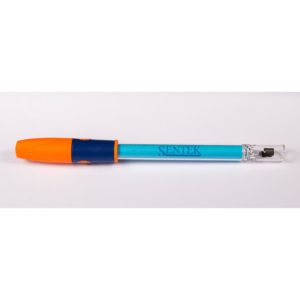Shop Electrodes by Application
Our products can be used in a wide range of applications. Our electrodes are manufactured accurately with first-class engineering and are ideal for quality results in various applications.
Water conductivity measurement refers to testing a sample of water to see how well it can conduct an electrical current. Pure, distilled water has extremely low levels of conductivity, and so the presence of other elements can increase conductivity. For example, sea water contains a lot of salt and other minerals. These can conduct currents more so than fresh water. Measuring how well water samples can conduct currents has a number of uses when it comes to testing water. Therefore, here are some reasons for why we measure currents in water.
One of the most vital uses for water conductivity measurement is to test any changes in a water source. Different types of rocks and metals can increase the ability for water to conduct currents. So, an increase in conductivity can point to a number of changes. A greater ability to conduct currents in fresh water lakes and streams could see a higher level of salt. This would point to a lack of rain and the water source drying up. It can even be due to an increase of metals in the water that may mean there is nearby pollution. Likewise, a lack of ability to conduct currents in salt water may point to an oil spill. This is due to the fact that oil impedes currents in water. In all these cases measuring conductivity is a vital part in finding changes in our water sources.
for water to conduct currents. So, an increase in conductivity can point to a number of changes. A greater ability to conduct currents in fresh water lakes and streams could see a higher level of salt. This would point to a lack of rain and the water source drying up. It can even be due to an increase of metals in the water that may mean there is nearby pollution. Likewise, a lack of ability to conduct currents in salt water may point to an oil spill. This is due to the fact that oil impedes currents in water. In all these cases measuring conductivity is a vital part in finding changes in our water sources.
Another crucial reason for water conductivity measurement is to test the safe levels of drinking water. Safe drinking water is vital for the survival of all living things. The presence of germs or toxic metals can harm and even kill those who come into contact with it. As mentioned before, distilled water will not conduct currents. So, a higher level of conductivity will point to other substances in the water supply. Some chemicals such as fluoride may be added for public health reasons; yet, the presence of other chemicals and substances may mean that a water supply that is compromised and unsafe to use. In this way testing how water conducts currents can save lives.
If you are trying to maintain ideal conditions for certain species of aquatic life, then water conductivity measurement is vital. Each species requires their own conditions: for example, fresh water fish cannot survive in ocean water. Looking at the ability for a water source to conduct currents will help you work out how suitable it is for the species you plan to look after. This can be very useful for conservation as well as for fish farming and even keeping aquariums.
Here at Sentek we make and supply electrodes suitable for testing a range of water sources. Our probes are made of high quality glass and epoxy, and can be used in the lab or out in the field. To find out more about our range of conductivity probes visit our online store or speak with our team today.
Copyright 2024 Sentek Limited. All Rights Reserved.
Marketing by Unity Online